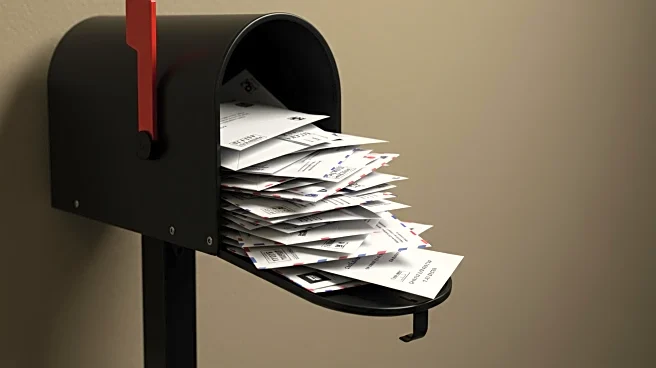What is the story about?
What's Happening?
HM Revenue and Customs (HMRC) has issued a warning to millions of Self Assessment customers about the increasing threat of scams. Fraudsters are impersonating HMRC, offering fake refunds or demanding urgent payments to steal personal and banking information. Despite a 12% decrease in scam reports from the previous year, over 170,000 attempts were reported between August 2024 and July 2025, with more than 47,000 involving fake tax refund claims. HMRC emphasizes that it will never request financial information via text or email and advises customers to report suspicious activity. The deadline for online submissions is January 31, 2026.
Why It's Important?
The warning from HMRC highlights the persistent threat of financial scams targeting taxpayers, particularly during the Self Assessment period. These scams can lead to significant financial losses and identity theft, affecting individuals and the broader economy. By raising awareness, HMRC aims to protect taxpayers from falling victim to these schemes. The agency's efforts to educate the public on recognizing and reporting scams are crucial in mitigating the impact of fraudulent activities on personal finances and public trust in tax systems.
What's Next?
As the Self Assessment deadline approaches, HMRC is likely to intensify its public awareness campaigns to prevent scams. Taxpayers are encouraged to file returns early to reduce their vulnerability to scams. HMRC will continue to monitor and respond to scam reports, potentially collaborating with law enforcement to track and prosecute fraudsters. The agency may also enhance its digital security measures to safeguard taxpayer information.
















